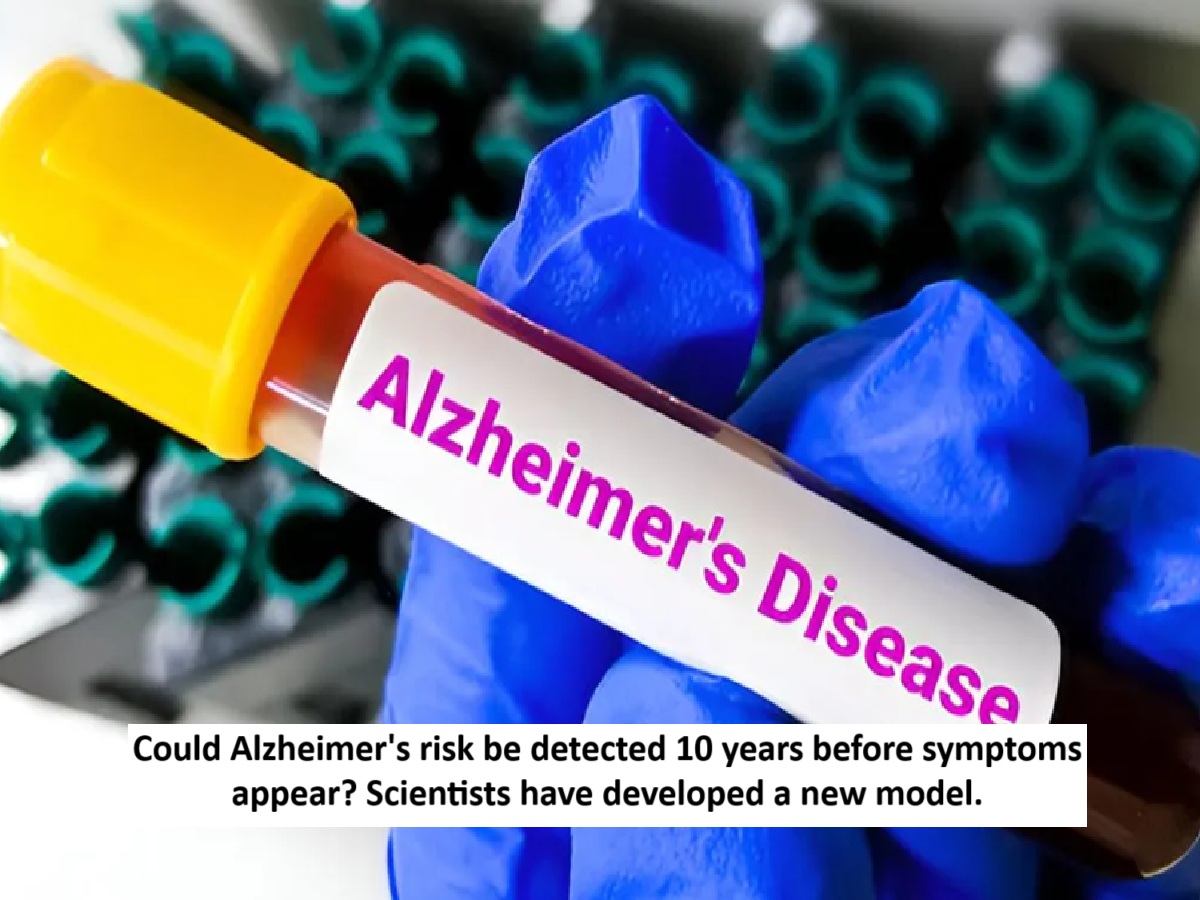
News Topical, Digital Desk : Serious diseases like Alzheimer's often go undetected until symptoms appear—such as forgetfulness, reduced thinking ability, and difficulty with daily tasks. But now scientists have developed a predictive model that can estimate the risk of these problems nearly 10 years before they begin. This discovery is significant because early precautionary measures could help slow the disease's progression.
What is this new device?
Researchers at the Mayo Clinic in the US have developed an advanced tool designed to simulate a predictive model that combines several key factors to estimate a person's likelihood of developing mild cognitive impairment or dementia.
The main factors included in the model are:
- age gender
- genetic risk, such as the APOE e4 variant
- Levels of amyloid proteins in the brain, which are considered a primary sign of Alzheimer's
Information obtained from a PET scan
All these indicators are combined to create a risk level that indicates a person's likelihood of cognitive decline over 10 years or a lifetime.
Study based on data from 5,858 people
The study is published in the journal The Lancet Neurology. Researchers analyzed longitudinal data from 5,858 participants from the ongoing Mayo Clinic Study of Aging project in Minnesota, USA, which has been investigating the relationship between brain health and aging for decades.
- People with the APOE e4 gene – whether men or women – were found to have a higher lifetime risk of Alzheimer's.
- Women may be more susceptible than men to Alzheimer's or mild cognitive impairment throughout life.
- The higher the amyloid levels found on the PET scan, the greater the risk of dementia or memory problems in the future.
How does it help?
PET scans can detect amyloid protein deposits in the brain, the same protein that reflects early changes associated with Alzheimer's. The new tool combines this information with other factors to create a clear risk profile.
From this it can be inferred that:
- whether a person will develop mild cognitive impairment in the next 10 years
- Or what is the likelihood of developing dementia during his or her lifetime?
This tool helps both doctors and patients understand when to initiate interventions – such as medications, regular mental exercises, physical activity, or lifestyle changes.
A big step forward for doctors
According to the research team, this model could prove crucial in improving personalized care in the future. Just as cholesterol levels help predict heart attack risk, this device could also help assess an individual's brain health.
Although this is still a research-based tool, experts believe it could revolutionize early detection of Alzheimer's.
There's no cure for diseases like Alzheimer's, but early detection of risk factors can significantly slow its progression. This new device, developed by the Mayo Clinic, could make brain health monitoring more accurate and personalized in the future, helping people take timely action.
Read More: Does your face suddenly swell? A doctor explains the possible cause.
--Advertisement--

 Share
Share



